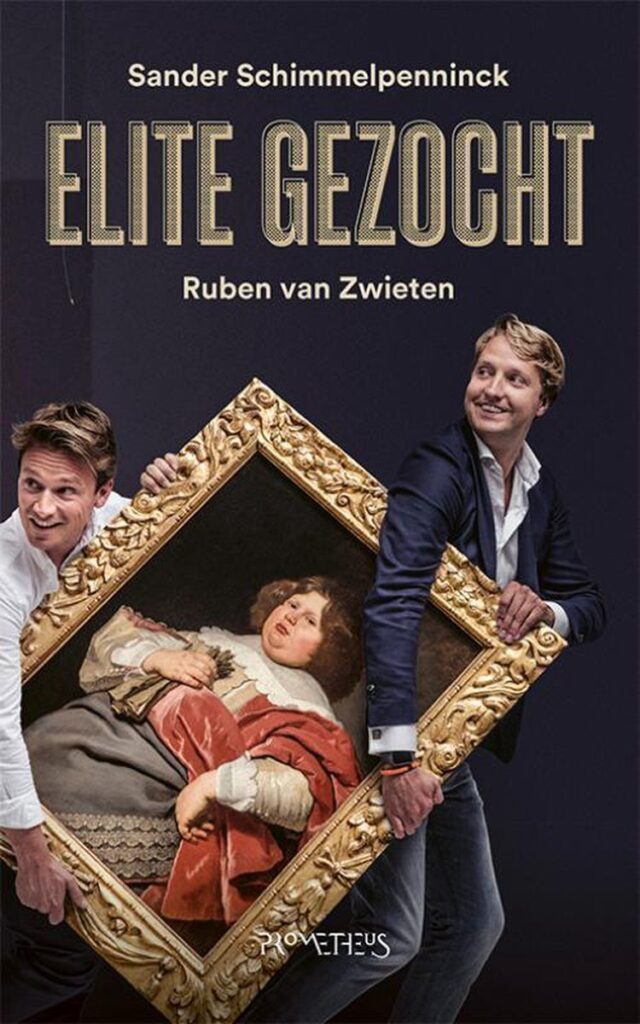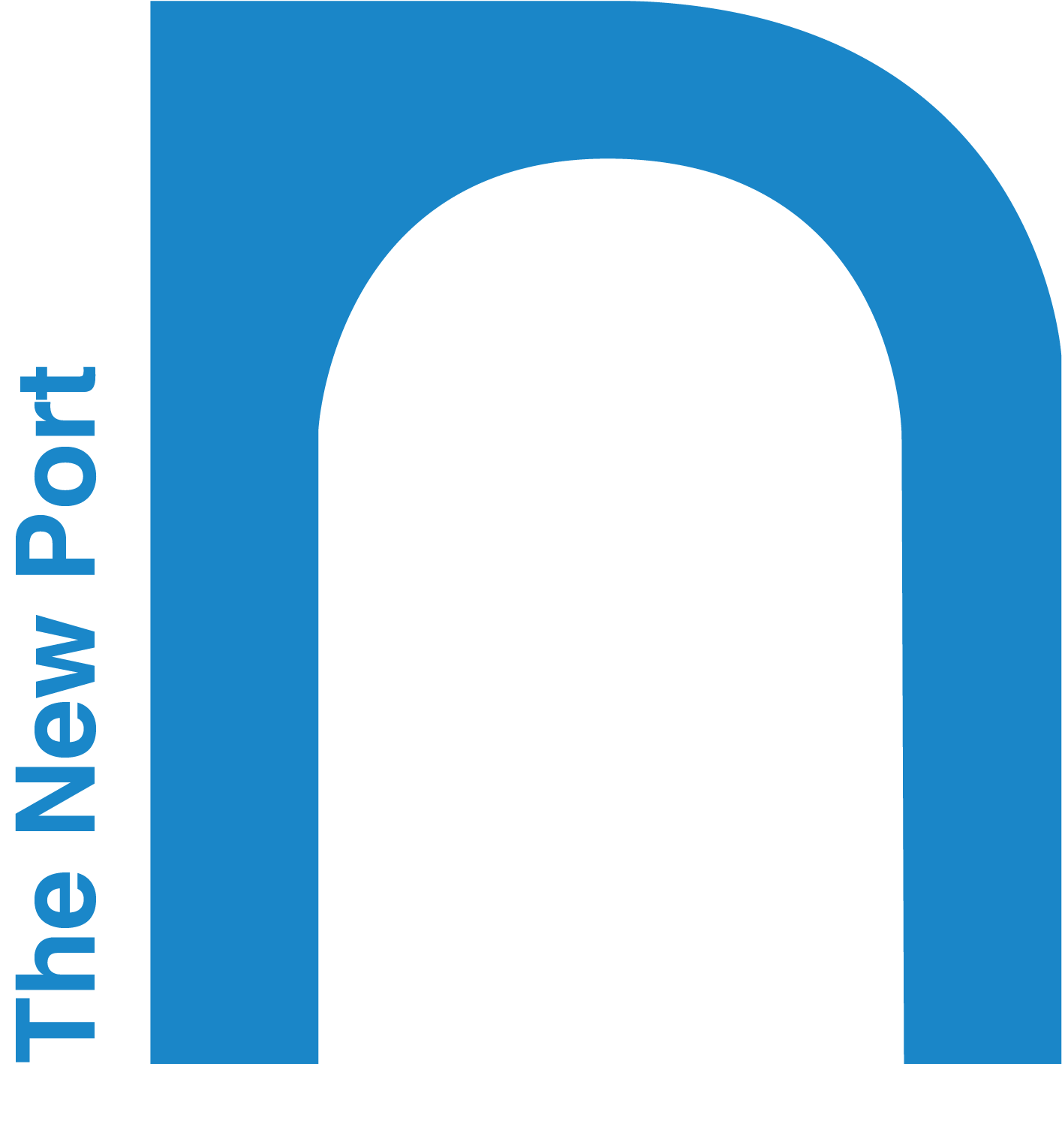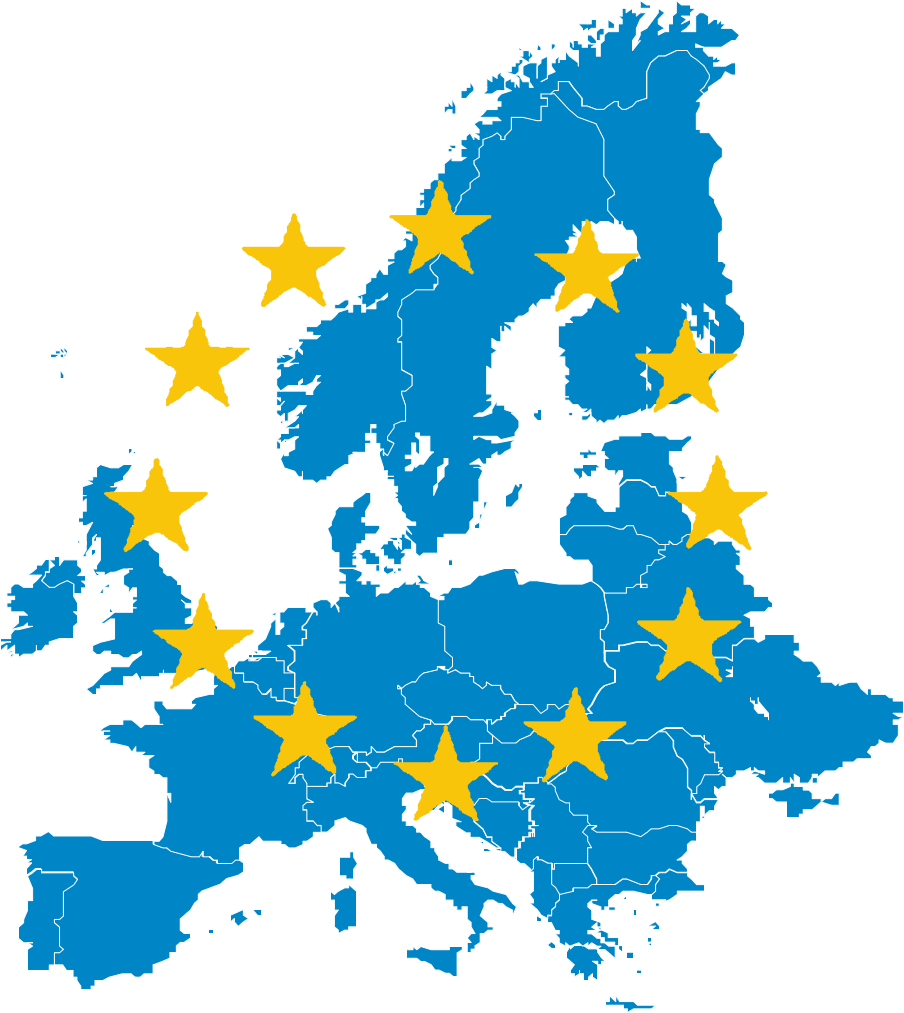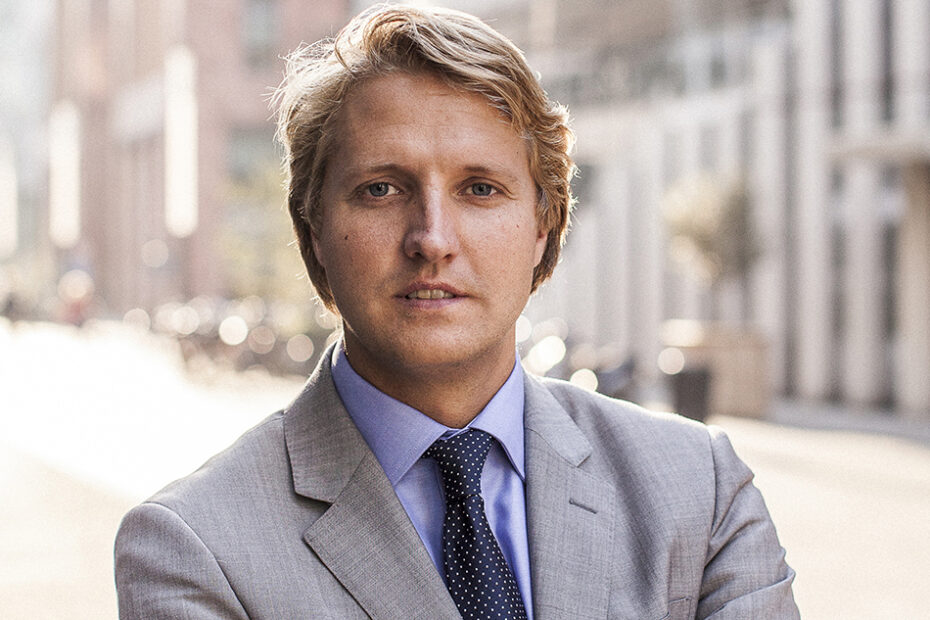Interview on brainwash.nl by Stine Jensen, translated by The New Port
In 2020, for the first time in the history of the Netherlands, the secular population is in the majority (55%), according to the Social Cultural Planning Bureau. This means that they do not believe in God. What do you believe in if you don’t believe in God? In this series for Brainwash, Stine Jensen presents this question to thinkers, writers and philosophers. Where are they on the secular yardstick?
In this episode: reverend and entrepreneur Ruben van Zwieten (1983). He is the founder of De Nieuwe Poort, a meeting place for rest and reflection whose first locations were on the Zuidas and in Rotterdam. In 2013 he was proclaimed Theologian of the Fatherland. Recently, together with Sander Schimmelpenninck, he published the book Elite gezocht (Elite wanted), in which wealth inequality, mental poverty and economic growth are addressed.
When I get the chance to talk to him, Van Zwieten is on his way to the Dutch province of Zeeland, where he ‘takes over a church building’. The news of the total lockdown doesn’t have a major impact for him at the moment. “De Nieuwe Poort was already closed because of its catering function, but the Vrije Universiteit (the ‘Free University’ in Amsterdam, ed.) was still using our 1500m2 of rooms on the Zuidas with lectures. Our social investors in Rotterdam are fairly friendly, but the investors in the Zuidas are different. The financial pressure hangs over us like the Sword of Damocles. The previous speech in the turret (political speech in The Hague, ed.) was on 16 March, but it started for us as early as February, when the business community started to cancel meetings. I am very connected with the fate of The New Port. Fortunately, we were able to keep people with a distance from the labor market at work, but not the managers.”
“The financial pressure hangs over us like the Sword of Damocles, but fortunately we were able to keep people with a distance from the labor market at work”
Ruben van Zwieten
Van Zwieten wants to turn De Nieuwe Poort into both a Dutch and a European initiative: The New Port. Locations in Europe that are anchorages for our Western civilisation. A hotel with content. Where people can indulge in sources and history that can form anchors for our lives and coexistence. This is how he opened Le Nouveau Port near one of the five landing beaches of Normandy, and in the Spanish City of Arts and Sciences Valencia: hotel El Nuevo Puerto. Rome and Athens are his dream. Corona volente.
And his work as reverend? ‘Well, marriages are postponed without exception – except for Grapperhaus then (Dutch minister that was seen on a wedding when not committing to Corona measures, ed.) – but people die, and funerals are not postponed. I’ve done live streaming of deaths, and it’s so inhumane. Everyone feels that you will have to do the real memory one more time, at another time’.
With what faith or philosophy of life were you raised?
“I wasn’t really raised with the church and I don’t feel like a believer. I’ve learned to say: I like to live with the stories of the Bible. I got these stories by doing an internship at the Thomas Church (protestant church in Amsterdam, red.) and was inspired by what they call in theology the Amsterdam School: a re-experience within the Church of the Bible stories as literary compositions and poetry. This began with reverend Miskotte, pastor of De Nieuwe Kerk (The New Church) in Amsterdam, while the Netherlands became more and more reformed in an increasingly narrow historical reading of the Bible stories. An interesting group of both Catholic and Protestant theologians, led by Professor Miskotte, received renewed attention for the original compositions of the Bible stories. They saw the interrelationship between the stories of the Bible and the repeated, carefully composed symbols of the writers. The Amsterdam School rejected every linear, historical, chronological reading of the Bible, but shared in the joy and seriousness of the symbols with people like Van Kooten and de Bie, Aart Staartjes, and Karel Eyckman. They read the Bible very literally. And said from the University of Amsterdam to the reformed Free University boys who, after Geelkerken, also had a church rupture in the Dutch hunger winter of 1944: “You were always talking about whether or not the snake spoke in Paradise. But what the snake said, you never fucking talked about it!” It made me happy.”
“I also read Nico ter Linden, who wrote: ‘God is a problem’. Exactly! To say that it all comes down to the same thing is a lie. Look, it starts with atheism, but in the end, we all go down on our knees before a God, whether it’s Statistics, the overvaluation of our house or our football cluster. You should think about how humanistic the Bible is. It is about the liberation of mankind, about our life and living together on earth. Because of that realization I got more and more enthusiastic about becoming a reverend. I had already successfully set up a student company but I thought: I’m just going to give it a try, this reverend education’.
The Amsterdam School was all about stories: how does it work with characters? Jesus is a literary character. Just like Moses. ‘He who was saved from the water’ is what his name means. With a wicker basket, an ark. When he then rescues the whole human being from the water, with the splitting sea, it becomes a literary composition with even more meaning: he who sets free. Exactly what the names of Joshua and Jesus mean.
I’ve grown towards Huub Oosterhuis and am a fan of Colet van der Ven. It is a thin movement within the church, the people who see the Bible as the human work of writers, composing stories that refer to each other as a network of meaning with a very preconceived plan. Take the expression ‘third day’, which means: something decisive is going to happen. I see the Bible as a musician looks at an overture: full of repetitions, like a composition.
In Obama’s new book, A Promised Land, this is also the case. He grew up in Chicago from black vicars who do not see the Old Testament as historiography, like Maarten van Rossum, but as composed stories. In the Catholic and Protestant tradition this is now almost entirely absent”.
What are your current beliefs?
When business leaders come to visit, they’re usually afraid they’re going to have to believe something. I just want to know your name first. And then I want to know what your story is. And for me? Ruben is my name, and I live with sources of inspiration, such as The Crown (Netflix series, ed.), the Bible, the Iliad and since this week also from the new Dutch movie De slag om de Schelde (The Battle of the Scheldt). Asking what I believe is completely unbiblical! You are a pupil of stories. Look, when they’d say: here, you’ll get a column in Trouw, then I’d think: mwah, but if I’d get one in Het Financieele Dagblad, then I’d think: ‘yes’. The more input I have in the secular world with themes like liberation and resurrection, the better. Because there I can really apply content to human life and living together. Where the church is too much about heroes of faith and piety, and all those religious states, I prefer to let ‘the streams of justice’ flow in other places. In that respect, I feel more at home with philosophers and journalists than within the Church. They are involved in shaping society and freeing it from abuse. And oh yes, all those things about homosexuality and so on, I do not even feel like reacting to that. I can’t believe that people even took that turn in the Church.”
Has there been an event in life that has changed your view of the meaning of life?
I always say I wanted to be a reverend because of the death of my grandparents. But there is something else. I come from a family of four and the television was often occupied. Sometimes I had the television for myself. When I was about 16 years old, I watched a documentary about the fall of Srebrenica. I also had to fill in what I wanted to study. Economics was obvious. But I had to cry so loudly at the lack of UN flight support for Dutchbat. In the end, only theology is about this powerlessness, this sadness. I watched television, saw the pictures, my sister, who was ten years older, came in and I said: ‘It’s going to be theology after all’. ‘Good choice’ she said.
And then I went to Leiden (Dutch city, ed.), with all the children of reverends. I wasn’t in my place there, I knew that, but I also knew: if you eat Brussels sprouts, you’ll come to dessert. Swallow and carry on. The first year we had to learn Hebrew. That’s why you had to have done Greek and Latin; now you don’t have to anymore, the havisation of theology has started. Learning Hebrew, that’s intense. Especially if you have just joined the Leiden student corps (Dutch student association with fraternities, ed.) and have to be prominent at the society until late at night. At one point the assignment was to translate Genesis 37 through 47. My name is Ruben, the only one with a biblical boy’s name in our family. And this piece is about him, and he doesn’t get off well. He always wants to put his foot down with his father. This was very confronting! But every day I went back to the story. Between the ‘two tits and beer-songs’ at my student association, I just wanted to know how things were going with Joseph and his brothers. The Joseph story unfolds itself literary genius. Why does all mankind come to Joseph for bread in fear and slavery Egypt? Then from that narrative point on to tell the Exodus from the same country to the promised land’.
Wanting to know how it goes on: that’s why I love Netflix series like Borgen and The Wire, which are about power and authority, and about daring to rise up and daring to contradict each other. On Monday I saw the premiere of De slag om de Schelde in Zeeland; also a film about good and evil. We end with dreadful sympathy for a young Zeeland that is already defecting to Hitler Jugend at an early age! The boxes become unclear, which box am I in? That is the power of stories.”
If not the Bible or the Koran, which book/artwork do you think everyone should read?
“If you start with the Bible, it’s about the first five books of Moses, from Egypt to the Promised Land. My favorite novel is The Map and the Field by Michel Houellebecq. He shows what is reality, religion or perception, and criticizes our time in which marketing is everything. I immediately bought fifteen copies to give away to people who are on councils and boards and said: go and read this. They only read Steve Jobs!
I think Lennon’s Imagine is heavenly. The amazement that comes out of it, and the hope. In the end that is what keeps us going: the hope that we will turn the earth into heaven. In Christianity, you only get to heaven after earth. But Lennon says with Imagine: let the earth become heaven here, for everyone. As the Lord’s Prayer said: right in heaven, yes, so on earth as well. As Gerard Reve said: ‘Hey God, that kingdom of yours, is that somewhere or what?!
Look, I don’t know if Houellebecq is a good Bible reader, but do you know who is? Rembrandt! What he did with those stories, that is so well understood. And with humour! Jesus as a gardener! Or his self-portrait of R. in the form of Paul. He has seen that this refers back to King Saul and David. “Saul, Saul, why are you chasing me? And again from Saul to Paul, that’s a circular retelling.”
Is it important to name or pronounce that you (do not) believe?
“In this day and age you should actually be proud of the fact that the Netherlands is no longer Christian, not Protestant, not Catholic, but has a multitude of sources of inspiration. It’s a pity, however, that our ambition is so low to get to know these sources of inspiration; it’s limited to the position of Feyenoord or Ajax (Dutch football clubs, ed.). We have become empty people. Let alone that we still want to be in a tradition or belong to a community, other than our football friends.
Everything that solidifies is dangerous. Islam often expresses itself as dangerously solidified dogmatism, but the writing is constantly fluid. The main story of Islam is about submission, not about making people flourish, I do not fall for that.
I also studied law. Then I discovered that you always get away with certain sentences: ‘Given the circumstances of the case’. But that’s the way it is. Sometimes you have to stay together in a marriage, sometimes exodus is necessary’.
Two years ago there was a fuss when the HEMA (Dutch store, ed.) advertised ‘Happy Spring’ instead of ‘Happy Easter’. The so-called conservative Christian politicians such as Wilders and Baudet immediately started to fire on this. But any clotting is wrong’.
Which social or worldly developments are you most concerned about?
This looks like sermons for my own parish, but: I’m on my way to Zeeland, where a 16th century church building is being transformed into De Nieuwe Poort. Eating, drinking, sleeping, conferencing, debating, exhibitions, performances and Sunday morning church service. I’m staying at Zeeuwen’s (people from Zeeland, ed.) house; people are waiting with a meal for me. And all those people think one thing is important: doing something together that has nothing to do with economics and politics. Every village used to have a church building on the market square opposite the town hall. A place where highly educated and poorly educated people, people with lots and lots of money, come together through all ranks and positions.
In Elite gezocht, we (Van Zwieten and Sander Schimmelpenninck, ed.) say it much more directly: the growing wealth inequality is the seed for a class society, and is the biggest problem of the future. Here a Biblical story teaches: whether you are a major shareholder or a banker, at supper you are nothing less than the other person who could not take care of his teeth. People who are given power change, and if you retreat into a bubble and put children together in the year club, then for me the church is a very good antidote against the class society that is germinating in our egalitarian low countries as well.”

Do you have any Christmas thoughts for us?
There are colleagues who pray at Christmas: ‘Dear God, thank you for sending your son 2020 years ago’. I myself, however, brighten up because of what I see writers doing with the Christmas story; after all, the Christmas story is a total summary of the whole Exodus story of the Torah, it is so beautiful what they do. You have Augustus, the exalted one, you have the Heroditus figure who wants to kill all the boys of two years and below. And who’s going to stand up to the bastards?
That’s about now. Who is going to take on Trump, who is not eroding democracy with a teaspoon, but with a snow shovel? Maybe you think: put another big man up against it. We think we have to take on Goliath with another Goliath, but we have to take on a helpless child at Christmas. The Christmas story teaches: liberation and the future comes from two elements: from something completely unexpected and very fragile. And we did not expect that. In the end, we are born with a bib and we end up with a bib. And even between that time we are dependent on others for a large part of our lives.
My Christmas message? Be receptive to the things in life that are going to bring renewal and hope, and know: it comes from unexpected and vulnerable places.”


